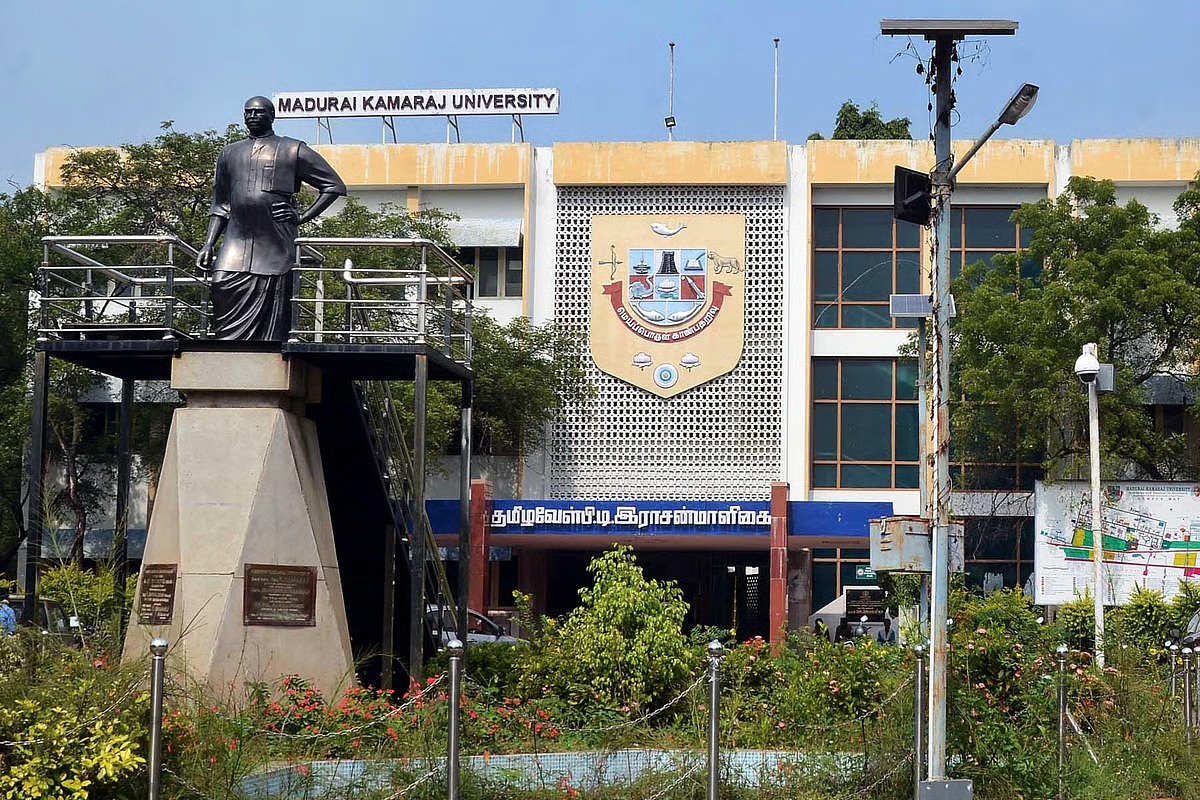I.A. Ansari, J.@mdashHeard Mr. D.K. Biswas, learned Counsel for the petitioner and Mr. U.B. Saha, learned Senior Government Advocate, assisted by Mr. D.C. Nath, learned State counsel appearing on behalf of the respondents.
2. The case of the writ petitioner may in brief state, thus :
The petitioner''s father, Sachindra Chandra Saha (since deceased), owned some landed properties at Ishanchandranagar, Mouza Madhupur, West Tripura District. The petitioner''s father died, on 15.1.2003, bequeathing his landed properties, by way of registered will, in favour of the petitioner, who is the youngest son of the said deceased. The petitioner, then, applied, on 23.3.2003, to the Tehsildar, Suryamani Nagar/Tehshil Kachari, u/s 46 of the Tripura Land Revenue and Land Reforms Act, 1960 (for short, the T.L.R. & LR. Act) for mutation of the said land in his name as sole successor to the said property left by his father. Based on the petitioner''s application, MR Case No. 31 of 2003, was registered and by a notice dated 26.5.2004, issued in the said proceeding, the petitioner was asked to present the said registered will, in original, along with other relevant documents of the land, in question, before Tehsildar concerned on 7.6.2004. The petitioner accordingly produced all the documents, so demanded; but the Tehsildar (Revenue Officer) denied to grant mutation on the ground that without the registered will having been probated, no such mutation can be granted in favour of the petitioner. The petitioner, then, submitted an application through Tehsildar to the Deputy Collector, Dukli, Revenue Circle, seeking mutation of the land aforementioned in favour of the petitioner. As the petitioner''s application and repeated requests made by him to the Deputy Collector, Dukli, Revenue Circle, yielded no favourable result, the petitioner has come before this Court seeking, with the help of this present writ application, issuance of appropriate writ or writs commanding the respondents to grant mutation in respect of the land aforementioned as had been sought for by the petitioner.
3. The respondents have contested the proceeding by filing their affidavit, the case of the respondents, in brief, that it is the Deputy Collector, Dukli, Revenue Circle, who is the empowered officer under the provision of the T.L.R & L.R. Act to dispose of the mutation application and, accordingly, the Deputy Collector aforementioned took up the mutation application and directed the petitioner to produce all the survivors, i.e., legal heirs and successor of the deceased Sachindra Chandra Saha, before the Deputy Collector in order to enable him to grant mutation. However, as the petitioner failed to produce the persons, who had been left behind as legal heirs and successors by the said deceased, mutation could not be granted in favour of the petitioner.
4. While considering the present writ petition, what needs to be noted is that it is Section 46 of the T.L.R. & L.R. Act, which deals with mutation of immovable properties in the State of Tripura. Under Sub-section (2) of Section 46, the power to grant mutation is vested in the village accountant. The expression "village accountant" has not been defined under the TLR & LR Act. However, there is, admittedly, a notification issued, on 22.12.2001 by the Government of Tripura, Revenue Department (Land Reforms Cell) in exercise of the powers conferred by Section 2(d), 2(f) read with Section 8 read with 4 livid, Section 143, Section 187(3) and Section 195 of the Tripura Land Revenue and Land Reforms Act, 1960, whereby the power to grant mutation u/s 46 has been vested in the Deputy Collector, Revenue Inspector, Asstt. Survey Officer and Kanungo, Viewed thus, it is abundantly clear that the Deputy Collector, Dukli Revenue Circle, who stands impleaded in the writ petition as respondent No. 3, being in terms of the said notification, authorised officer, is empowered to grant mutation and in the case at hand, it is the Deputy Collector, Dukli Revenue Circle, who is, admittedly, in seisin of the mutation application made by the petitioner. The respondent No. 3 has, however, insisted that the petitioner shall produce before him all the survivors of the said deceased. This is neither desirable nor mandatory under the provisions of Section 46 and/or any other provisions of the T.L.R. & L.R. Act. Far from this, a duty is cast on the authority concerned to publish, in terms of Sub-section (3) of Section 46, notice inviting objections, in writing, from persons, who may be interested in the property in respect whereof application for mutation has been made.
5. In the above view of the matter, the respondent No. 3 herein, instead of insisting that petitioner shall produce the legal heirs and successors and/or legal representatives of the said deceased, ought to have either published a notice as required under Sub-section (3) of Section 46 or served notices on the legal heirs and successors concerned. Insistence, on the part of the respondent No. 3, that the petitioner shall produce all the survivors of the said deceased is, therefore, not sustainable.
6. Coupled with the above, it is also necessary to point out that it is Section 213 of the Indian Succession Act, which makes it obligatory for executor or legatee of a will to obtain probate of the will before he or she claims right based on the will. For the sake of brevity. Section 213 is quoted hereinbelow :
213. Right as executor or legatee when established, - (1) No right as executor or legatee can be established in any court of justice, unless a court of competent jurisdiction in India has granted probate of the will under which the right is claimed, or has granted letters of administration with the will or with a copy of an authenticated copy of the will annexed.
(2) This section shall not apply in the case of wills made by Muhammadans, and shall only apply -
(i) in the case of wills made by any Hindu, Buddhist, Sikh or Jain where such wills are of the classes specified in Clauses (a) and (b) of Section 57; and
(ii) in the case of wills made by any Parsi dying, after the commencement of the Indian Succession (Amendment) Act, 1962, where such wills are made within the local limits of the ordinary original civil jurisdiction of the High Courts at Calcutta, Madras and Bombay, and where such wills are made outside those limits, insofar as they relate to immovable property situate within those limits.
7. A careful reading of the provisions, of Section 213 would indicate that an executor or a legatee under a will has to obtain probate of the will whereunder he claims his rights, provided that the rights are claimed in a court of justice. In other words, if a person, who is an executor or legatee under a will, does not claim his rights under a will in a court of justice, he is not required to obtain probate of the will under which he claims the right. This apart, as indicated under Sub-section (1) of Section 213, the requirement to obtain probate lies only when the will is made by a Hindu, Buddhist, Sikh or Jain, when the wills are of the classes specified in Clauses (a) and (b) of Section 57 of the Indian Succession Act. What also needs to be pointed out is that Clause (a) and Clause (b) of Section 57 indicate that these provisions are applicable to all the wills and codicils made by any Buddhist, Sikh or Jain within the territories mentioned in Clause (a) and also to such wills and codicils, where, though the wills and codicils are made outside the territories mentioned in Clause (a), the immovable property is located within the territories or limits as specified in Clause (a). A combined reading of the Clauses (a) and (b) of Section 57 and also Section 213 would show that where the parties to the wills are Hindus, but the property is not situated in Bengal, Bombay and Madras, Sub-section (2) of Section 213 of the Indian Succession Act has no application. It, therefore, logically follows that probate will not be required to be obtained by a Hindu in respect of a will made regarding the immovable property situated in the State of Tripura, for, the State of Tripura has, admittedly, never been a part of the erstwhile State of Bengal. In the passing, it may also be indicated that Section 213 is applicable only when a person claims his right as an executor or legatee under a will and not when he claims his right in any other capacity.
8. In the present case, though the said deceased was a Hindu, the fact remains that the immovable property left by him is at Ishanchandranagar which did not fall within the erstwhile State of Bengal, and, hence, probate could not have been insisted upon, when the petitioner had applied for mutation of the land as a beneficiary under the said will.
9. What crystallises from the above discussion is that the mutation application of the petitioner has to be considered and necessary orders have to be passed, in this regard, by the respondent No. 3, who is the competent authority to grant mutation and that for the purpose of claiming mutation in respect of the property, in question, it is not incumbent, on the part of the petitioner, to obtain probate of the will, whereunder he has made the claim for mutation.
10. Bearing in mind the above aspects of the matter, respondent No. 3 is required to dispose of the application for mutation, in question, in accordance with law.
11. In the result and for the foregoing reasons, this writ petition is disposed of with direction to the respondents, in general, and the respondent No. 3, in particular, to dispose of the mutation application made by the petitioner in accordance with the provisions, of T.L.R. & L.R. Act bearing in mind, however, the observations made in the preceding paragraphs of this judgment and order.
12. With the above observations and directions, this writ petition shall stand disposed of. No order as to costs.

